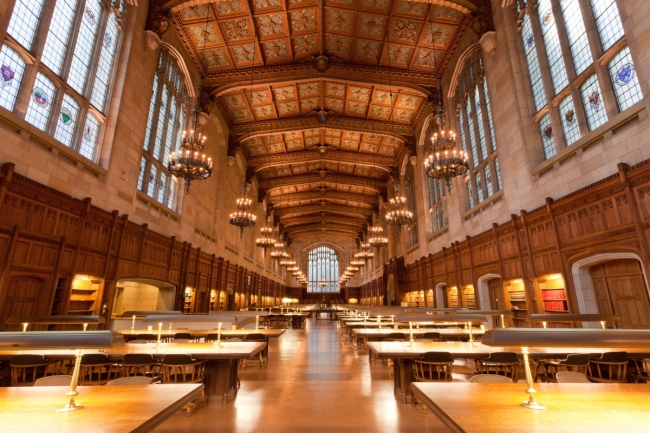You have /5 articles left.
Sign up for a free account or log in.

University of Michigan law school
iStock
Undergraduates considering a law degree are motivated by a desire to contribute to the public good, but high costs and work-life balance concerns deter some of them, according to a study released today.
The study, conducted by the Association of American Law Schools (AALS) and Gallup, utilized survey responses from more than 22,000 undergraduates at 25 four-year institutions and more than 2,700 first-year law students at 44 different law schools. (Note: Inside Higher Ed works with Gallup on some surveys but had no role in this one.)
Researchers administered the survey during a dramatic dip in law school applications: between 2011 and 2016, the number of law school applications fell by 38 percent, from 87,900 to 54,500. According to Judith Areen, AALS executive director, applicant numbers plateaued in 2016 and 2017 and increased by 8 percent in 2018.
“[The application decline] brought home the need to better understand what college students think about law schools,” Areen said. “For students, the more we understand about them, the better law schools can do in meeting their expectations.”
Parental education plays a major role in student decisions about law school. Only 12 percent of American adults age 45 to 64 have an advanced degree, but 55 percent of undergraduate students considering law school had at least one parent with an advanced degree. Family members are also the primary source of advice for undergraduates considering law. To Areen, this indicates that law schools need to work harder to reach first-generation students who might not have that family network.
“Law schools and graduate schools have to do a better job of getting more information to first-generation students so they know about the possibilities and they apply on time and get all the information they need,” she said.
Law school isn't a last-minute decision. Over half of undergraduate respondents said they had considered law school before college, and one-third had considered it before high school.
“[Law schools] need to start reaching out, not just during college but even before,” Areen said.
When asked why they wanted to pursue a law degree, undergraduate students most often reported that law school would be a “pathway for a career in politics, government or public service,” that they had “a passion for or high interest in the type of work,” that a law degree would provide “opportunities to help others or to be useful to society” and that they wanted to “advocate for social change.”
“We think the reasons they give are pretty interesting and will be a surprise to people who think of lawyers as only interested in money and greed,” Areen said.
Law school tuition continues to rise. Data from Law School Transparency, a nonprofit consumer advocacy group, shows that between 2011 and 2017 the average annual sticker price for a U.S. public law school increased by about $4,500, or 17 percent, while tuition at private law schools increased by more than $7,000 -- 15 percent. Undergraduates considering law school cited high costs/potential debt and work-life balance as the greatest deterrents. So did the first-year law school students.
“Cost and work-life balance are cited by undergraduates who are still making up their mind, but the same two are cited by first-year law students,” Areen said. “So that shows us that the same two are barriers, but they still came to law school anyway.”
Jim Greif, director of communications for AALS, added that the same two deterrents were cited by students considering other types of advanced degrees, such as master's programs, Ph.D.s or medical degrees.
Other notable findings include:
- Women are more likely than men to say that law school is too hard and that they don’t want to defend guilty people, while men are more likely to say that three years is too long and that too few jobs in the field pay enough money.
- Fifteen percent of undergraduates considering an advanced degree reported hearing about law programs, while 55 percent of students considering law school reported hearing about them. This may be due to confirmation bias, that students who are interested in law degrees will seek out and remember information about law school.
- Students with a lower grade point average are more likely to pursue law school because it could lead to a higher-paying job rather than because they're passionate about the work or see law as a path to a career in politics or public service.








